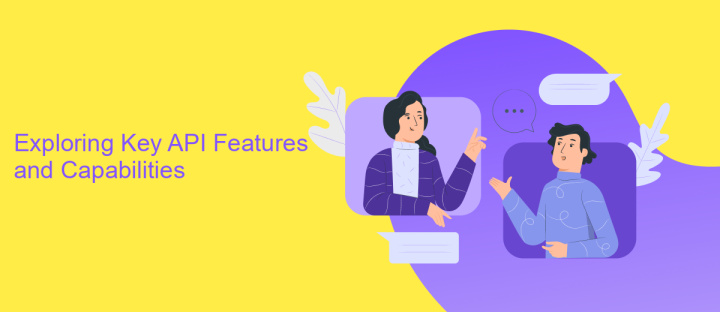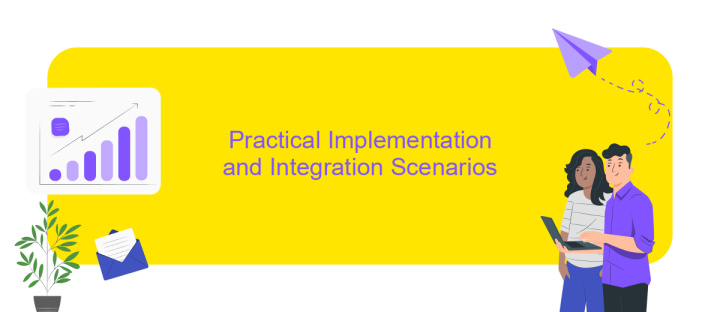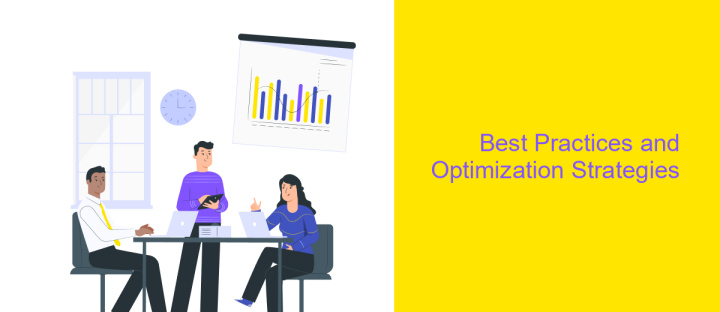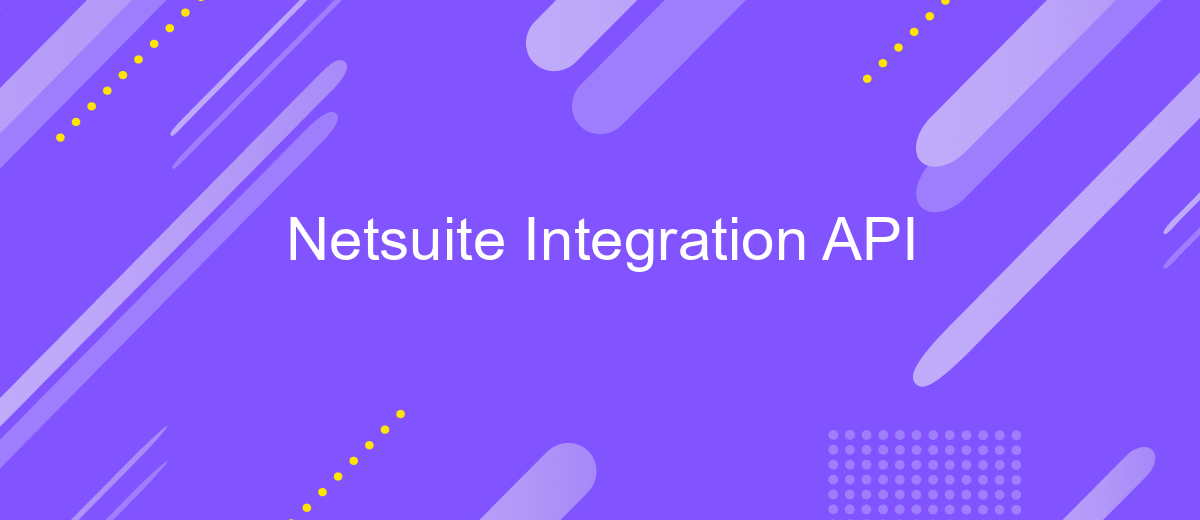Netsuite Integration API
The NetSuite Integration API offers a powerful solution for businesses seeking to enhance their operational efficiency through seamless connectivity. By enabling integration with various third-party applications, this API facilitates real-time data exchange, streamlines workflows, and optimizes business processes. Whether you aim to improve customer relationship management, financial operations, or supply chain logistics, the NetSuite Integration API provides the tools necessary to drive innovation and achieve strategic objectives.
Understanding NetSuite Integration API Fundamentals
The NetSuite Integration API is a powerful tool for businesses looking to streamline their operations by connecting NetSuite with other software applications. Understanding its fundamentals is crucial for developers and IT professionals aiming to enhance their organization's efficiency. This API allows seamless data exchange, automating processes and reducing manual errors.
- SOAP and REST Support: The API offers both SOAP and REST interfaces, providing flexibility in integration approaches.
- Authentication: It employs token-based authentication, ensuring secure access to NetSuite data.
- Custom Records: Developers can create and manage custom records, tailoring the system to specific business needs.
- Real-time Data Access: The API facilitates real-time data access, enabling up-to-date information for decision-making.
- Error Handling: Comprehensive error handling features help in diagnosing and resolving issues promptly.
By leveraging these features, businesses can optimize their workflows and gain a competitive edge. A solid grasp of the NetSuite Integration API fundamentals empowers developers to build robust, scalable integrations that meet diverse business requirements. As organizations continue to evolve, the ability to integrate seamlessly with NetSuite becomes increasingly valuable.
Exploring Key API Features and Capabilities

The NetSuite Integration API offers a robust set of features designed to streamline business processes by enabling seamless connectivity with other systems. One of the key capabilities is its support for RESTful architecture, which allows developers to perform CRUD (Create, Read, Update, Delete) operations efficiently. This flexibility ensures that businesses can tailor integrations to their specific needs, enhancing operational efficiency. The API also provides comprehensive support for SuiteTalk, which facilitates SOAP-based web services, enabling smooth data exchange and integration with third-party applications.
For businesses looking to simplify integration setups, services like ApiX-Drive can be invaluable. ApiX-Drive offers a user-friendly platform that automates integration processes, reducing the need for extensive coding and technical expertise. By leveraging such services, companies can quickly connect NetSuite with various applications, ensuring real-time data synchronization and improved workflow automation. This capability is crucial for businesses seeking to maintain agility and competitiveness in a dynamic market environment. Overall, the NetSuite Integration API, coupled with tools like ApiX-Drive, empowers organizations to optimize their digital ecosystems effectively.
Practical Implementation and Integration Scenarios

Implementing NetSuite Integration API involves a strategic approach to seamlessly connect NetSuite with other business systems. This integration enhances data flow, reduces manual entry, and improves overall operational efficiency. Successful implementation requires understanding both the technical and business aspects to ensure all systems communicate effectively.
- Identify key systems and processes that need integration with NetSuite.
- Develop a comprehensive integration plan, outlining data flows and user requirements.
- Utilize middleware or integration platforms to facilitate communication between NetSuite and other systems.
- Conduct thorough testing to ensure data accuracy and system reliability.
- Provide user training to ensure smooth adoption and utilization of integrated systems.
In real-world scenarios, businesses often integrate NetSuite with CRM systems like Salesforce to synchronize customer data, or with e-commerce platforms such as Shopify to streamline order processing. Each scenario requires a tailored approach to address specific business needs, ensuring that the integration not only meets technical requirements but also delivers tangible business benefits. Through careful planning and execution, organizations can fully leverage the capabilities of NetSuite Integration API to drive business success.
Best Practices and Optimization Strategies

When integrating with the NetSuite API, it's crucial to ensure a seamless and efficient process. Begin by thoroughly understanding the API documentation and the specific requirements of your integration project. This foundational knowledge will help you identify potential challenges and design a robust integration strategy.
To optimize performance, consider batching your API requests to reduce the number of calls made to the server. This not only improves efficiency but also minimizes the risk of hitting API rate limits. Additionally, implementing error handling mechanisms will ensure that your integration can gracefully recover from unexpected issues, maintaining data integrity.
- Leverage asynchronous processing to enhance system responsiveness.
- Utilize caching strategies to reduce redundant data retrieval.
- Regularly review and update your integration to align with NetSuite API updates.
- Monitor API usage and performance metrics to identify areas for improvement.
Security should be a top priority when integrating with NetSuite. Ensure that all data transmissions are encrypted and that access to the API is restricted to authorized users only. By following these best practices, you can achieve a secure, efficient, and reliable integration with NetSuite.


Troubleshooting and Common Challenges
When working with NetSuite Integration API, one common challenge is authentication issues. Users often encounter errors related to incorrect credentials or token-based authentication failures. To resolve these, ensure that you have the correct API keys and tokens, and that they are correctly configured in your integration settings. Additionally, double-check that your account has the necessary permissions to access the API endpoints you are trying to use.
Another frequent issue is data mapping errors, which can arise when the data structure in NetSuite does not align with your external systems. This can lead to failed data transfers or incorrect data synchronization. To troubleshoot, carefully review your data mapping configurations and ensure that field names and data types match between systems. Tools like ApiX-Drive can simplify this process by providing user-friendly interfaces for mapping data fields and automating data transfer, reducing the likelihood of errors. By addressing these common challenges with careful setup and the right tools, you can achieve a smoother integration experience.
FAQ
What is NetSuite Integration API?
How do I authenticate with the NetSuite API?
Can I automate data integration between NetSuite and other platforms?
What are some common use cases for NetSuite Integration API?
How can I handle errors and exceptions when using the NetSuite API?
Apix-Drive is a simple and efficient system connector that will help you automate routine tasks and optimize business processes. You can save time and money, direct these resources to more important purposes. Test ApiX-Drive and make sure that this tool will relieve your employees and after 5 minutes of settings your business will start working faster.

